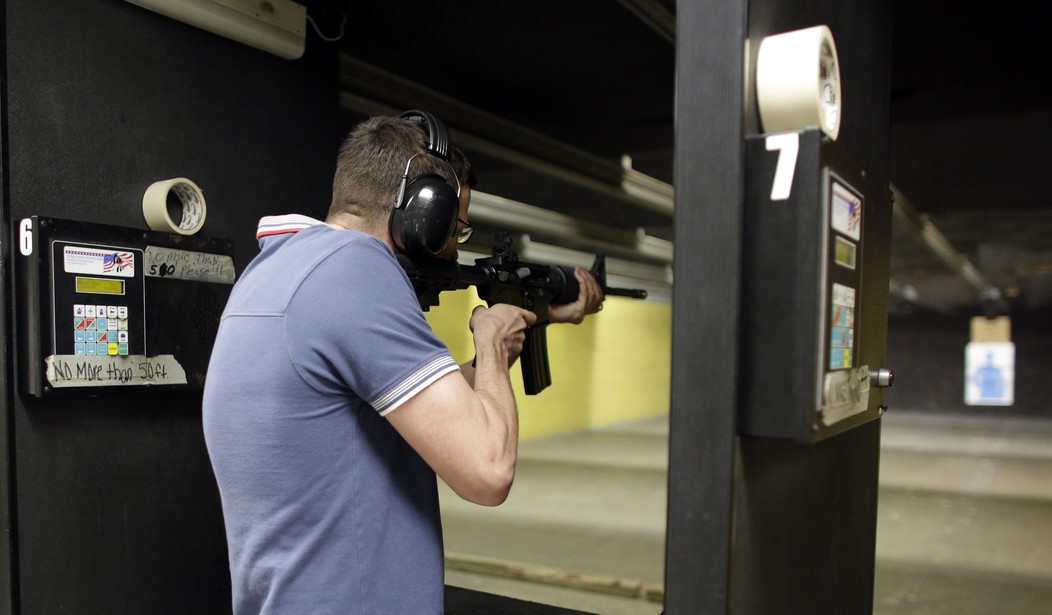It's been about 18 months since the federal government filed criminal charges against Frederick County, Maryland Sheriff Charles "Chuck" Jenkins and range owner Robert Krop, accusing them of lying to the ATF in order to obtain machine guns. Now the DOJ is dropping the charges against the sheriff, less than a month after a jury cleared Krop of any wrongdoing and raising the question: was this nothing more than a politically motivated prosecution?
Jenkins is fairly well-known for his hardline stance on illegal immigration, while Krop's first attorney Dan Cox argued that the charges against his client were meant to have a chilling effect on the exercise of our Second Amendment rights. Though the two men were charged together, their attorneys convinced a judge that they should have separate trials, and in mid-October, a jury acquitted Krop of all charges in federal court after just five hours of deliberation.
The Justice Department contended that Krop and Jenkins misled the ATF by asserting that the machine guns that were transferred to Krop would be used for "demonstrations" for the sheriff's department, but that no demonstrations had ever taken place. Instead, Krop was accused of using the machine guns as rentals at his gun store and range.
Jenkins’ federal indictment accused him of sending fake “law” letters to the bureau to take advantage of an exemption to rules barring possession, transfer or import of machine guns that allows licensed dealers to do so if they’re being used as samples for potential law enforcement or military purchasers.
Federal prosecutors alleged that no such demonstrations occurred and that the guns were instead intended to be used by The Machine Gun Nest as rentals.
The indictment alleged that Krop offered Jenkins political support in exchange for the fraudulent letters and that from 2018 to 2019, the gun rentals led to more than $100,000 in profit.
At trial, Krop's attorney Luke Cass argued that while Jenkins did write letters to the ATF seeking approval for machine guns to be transferred to Krop for the purposes of "demonstrations", the federal statute the pair were accused of violating never defined that term. That fact alone, Cass maintained, was enough for the jury to have reasonable doubt about the government's accusations, and the jury agreed.
With Krop cleared of all charges, the DOJ had a conundrum on its hands. How could they convince a jury that the sheriff had conspired with a range owner to break federal law when his alleged partner in the conspiracy had been acquitted by a jury of his peers? Dismissing the charges against the sheriff wasn't a foregone conclusion, but it was the safest course of action, and today the Biden administration officially backed down.
In a motion filed in federal court in Maryland Tuesday, Assistant U.S. Attorney Christine Goo asked a judge to dismiss the case against Frederick County Sheriff Charles “Chuck” Jenkins, who has led the agency since 2006. The move comes after a co-defendant, a Maryland gun dealer, was acquitted at trial, though the motion did not specify prosecutors’ reason for walking away.
A spokeswoman for the U.S. Attorney’s Office in Maryland declined to comment on why the case was dropped. Jenkins, 68, has long maintained his innocence.
“Any honest assessment of this interview will reflect that Sheriff Jenkins had absolutely nothing to hide and was genuinely surprised by the suggestion that he had done something improper, much less illegal,” his attorneys wrote last year, referring to a May 2022 conversation Jenkins had with federal agents conducting the investigation.
Even if the DOJ's decision to go after the sheriff and the gun range owner wasn't politically motivated (an open question, to be sure), it still had the effect of painting the top law enforcement officer in Frederick County and a local business owner as lawbreakers. Now that the charges have been dropped, where do Sheriff Jenkins and Mr. Krop go to get their reputations back?
More importantly (at least for everyone besides the two men who were charged), now that a jury has decided the statute in question is so vague and fuzzy that proving non-compliance is impossible, what will the DOJ do with these types of cases in the future? With Merrick Garland on his way out and Donald Trump soon naming a new Attorney General, there's every reason to believe that DOJ will soon quit playing games with our Second Amendment rights and focus instead on those violent offenders and career criminals who pose real threats to the public safety of their communities.









